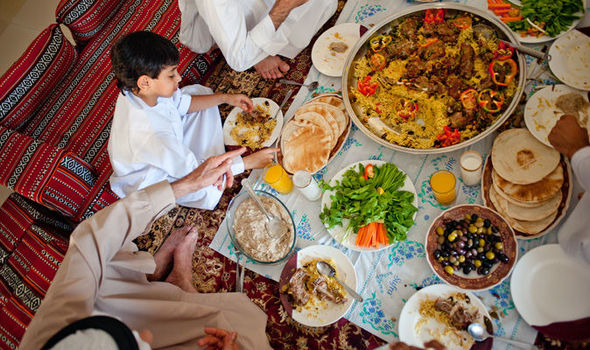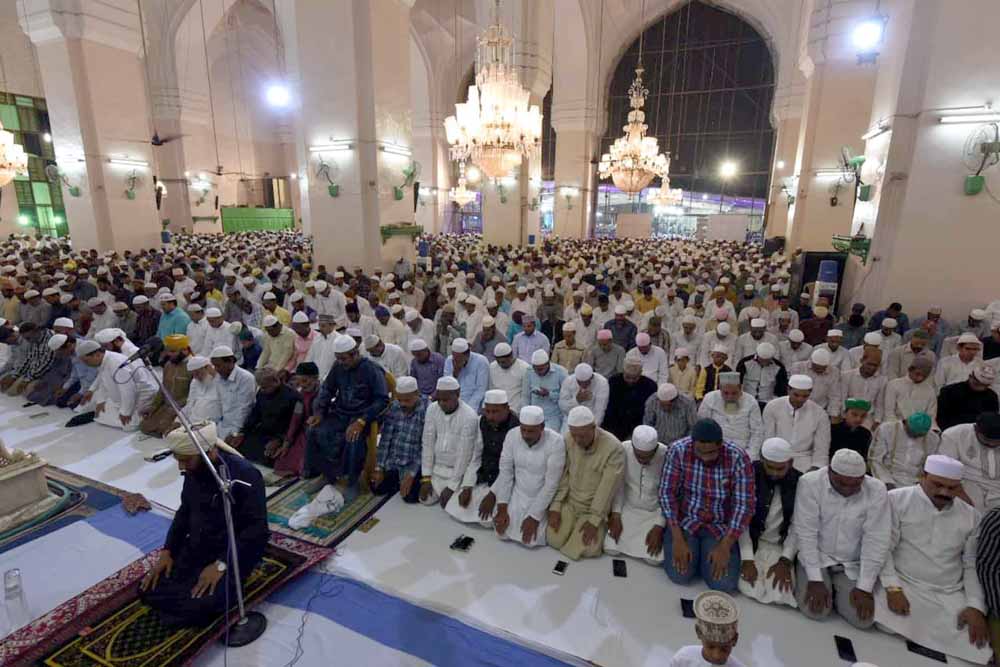
Background
Ramadan is the ninth month of the Islamic calendar, in which Muslims around the world fast from all foods and drinks from dawn until sunset. The month is one of the holiest months in the entire year for Muslims and is often when they begin to work on strengthening their faith and building their character.
The month is considered one of the holiest months in the year as it is the year in which the Holy Quran was sent down to the Prophet Muhammad (peace and blessings upon him), and it is when the Prophet himself reported that God told him that, “When the month of Ramadan starts, the gates of heaven are opened and the gates of hell are closed and the devils are chained.”
With the gates of Hell being closed, Muslims take the month as an opportunity to work on themselves with no distractions. The month is so well-respected many countries in the Middle East that primarily practice Islam, have decided on a ceasefire for the period of Ramadan, such as Saudi Arabia, which will halt military actions in Yemen for the month.
Ramadan is also the month in which the most people gather in a single area for the purpose of praying. Every Ramadan, 500,000 to 2 million Muslims from around the world head to Mecca, the holiest city for Muslims, to pray and strengthen their faith. In addition to fasting from food and water, Muslims attempt to display abstinence from worldly attractions such as music, inappropriate media and romantic or sexual desires, in order to focus on religious activities such as prayer, reading the Quran, making supplications, and attending Islamic lectures and events.

2022
Ramadan 2022 begins on April 2 and will continue for one month, until the celebratory feast on May 2, Eid Al-Fitr, which marks the end of Ramadan. What makes Ramadan 2022 a very special one is that it is the first Ramadan since 2019 that will not be held in quarantine. The past two Ramadans were forced to be spent in isolation due to the pandemic, which took away many of the group activities that come with Ramadan. These group activities are huge as one of the most beautiful parts of Ramadan is the way it brings people together to break their fasts and work on their faith together. Families, friends, and communities gather as often as they can to pray the sunset prayer together before breaking their fasts.
What was Lost
For the past two Ramadans, the youth of the Muslim community has been deprived of mingling with others like them, which can easily result in them not feeling secure in their identity. Spending time with others like oneself, especially during a month like Ramadan, is sure to make one feel more confident and secure in who they are. Additionally, fasting while in school can be a challenge for some, especially if they are alone in their fast. That is why when Muslim youth join together for a few hours, it makes them feel like they have a support system and encourages them to continue their fast even on hard days.
Perhaps the most significant part of Ramadan that most Muslims are looking forward to this year is prayer. Prayer is the arguably most important thing in Islam, as it is how Muslims repent, thank, ask, and communicate with God. Moreover, praying in groups gives Muslims twenty-five to twenty-seven times as many hasanats (credit for good deeds) than if they were praying alone, according to a Hadith (saying) by the Prophet Muhammad. That is reason enough to encourage many Muslims to attend group prayer at their Mosque, and like having group feasts, it makes Muslim youth feel less alone as it establishes a sense of community. Additionally, going to the weekly Friday prayer is so special in Ramadan. In Friday prayers, lectures are given before the prayer starts, and they may be about any topic related to Islam, whether it be a topic that may help Muslim youth or a learning lesson from the Prophet (peace be upon him). The reason these lectures are so special in Ramadan is that the Imam (leader in the Mosque) generally makes the topic on Ramadan or related to it, further inspiring Muslims to strengthen their faith. To many, these lectures motivate them to focus on their religion and rejuvenate themselves Islamically. Although many lecturers have been kind enough to upload videos in the past two years, it does not feel the same as when one goes to the mosque, as when the lecture is in person, the effect of the lecture is much stronger.
Another part of Ramadan that Muslims could not fully experience the last two years was Taraweeh, otherwise known as the “late-night prayer.” Every day the leader of the prayer at local mosques read one out of the 30 parts of the Quran, so he may finish the whole Quran by the final day — a goal all Muslims strive to achieve during the month. The Taraweeh prayer was such a significant part of Ramadan, as it is one of the few parts of a Muslim’s day where they can hear the Quran and silently reflect, while simultaneously allowing themselves to take time and peacefully listen. This time is so remarkable because it allows listeners to feel intact with themselves and their spirituality, which is not common considering many don’t have time to do so daily, as they are at work or school.

Conclusion
This year will be the first year in two years that Muslims will have the chance to spend Ramadan with their loved ones: To be able to return to their Mosques and hear the lectures of the Imam, hear the recitation of the Quran, surround themselves with people like them and most of all: get back to a sense of normalcy through Ramadan. Ramadan is a beautiful, special month for so many Muslims, which gives them the opportunity to reform themselves and become better Muslims, and inevitably, better people. Experiencing Ramadan through two quarantines has been a challenging but unique experience.
While Muslims everywhere likely felt the absence of the gatherings, the late-night prayers, and debatably the things that usually make Ramadan so unique and astonishing, fasting in quarantine has given Muslims the chance to work on their faith completely on their own, and hopefully this Ramadan, they will be able to share their progress with their community.
Featured Image via Mohamed Hassan




